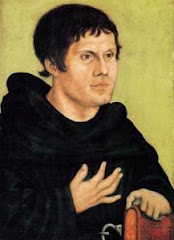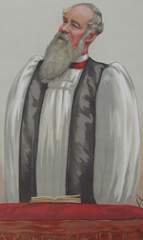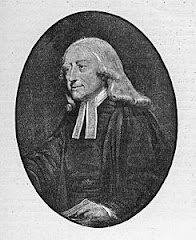Soli Deo gloria ("Glory to God alone")
All glory is due to God alone, since salvation is accomplished solely through his will and action—not only the gift of the all-sufficient atonement of Jesus on the cross but also the gift of faith in that atonement, created in the heart of the believer by the Holy Spirit. The reformers believed that human beings—even saints canonized by the Roman Catholic Church, the popes, and the ecclesiastical hierarchy—are not worthy of the glory that was accorded them.
The above information is from Wikipedia and is a short explanation of one of the five “Solas” of the Reformation.
As I have been pondering in my heart for some time the issue of the Communion of Saints as held by the Anglo-Catholic Church which I attend, I have come to realize where the uneasy feeling within me has come from. The Roman Catholic Church and the High Anglo-Catholic Churches hold to a belief that a saint canonized by the church is capable of intervening for humans who are yet alive on the earth. By their superior holiness they were allowed into heaven and now sit as an intercessor for the Christians on the earth and some miracles can be attributed to their intercession (how this can be proven I know not).
I have a strong belief that Reformed theology and the theology of John Calvin is the best summary of the Christian faith and best explains the seemingly confusing and unexplainable issues concerning God and our Christian faith. Coming from a Reformed point of view, the above statement from the Wikipedia article solves the issue that has been beating me around for a while. If God is completely sovereign concerning the use of all creation for His purpose and the salvation of that creation (and I firmly believe He is) and if He does indeed work through covenants that are irrevocable, (which He does) then those people who are ushered into God’s presence after death can make no claim that their personal holiness allowed them into heaven, but can only give all glory to God for His salvation, for taking away their reproach by His grace and mercy and by the shed blood of His only begotten Son, our Lord Jesus Christ.
It is a matter of theology. If one’s theology allows that a man or woman is saved by their extreme holiness then it is allowable that that person is able to take some credit for his salvation, be held up as a model of extreme holiness and intercede for the living on the earth. However, if one believes that a man is not saved by works but by grace through faith and the sovereignty of God and by His choice and election then there is no cause to puff up the memory of that deceased person, elevating them to the status of a mediator and a higher level of saint then the other redeemed living still on the earth. Yes, we should look to godly men and women as examples of holiness and imitate their lives, as Paul tells his followers to imitate him even as he imitates Christ. But notice that Christ is the one we ultimately imitate, for He is perfection. But no man or woman can take credit for their salvation because God is sovereign in His choice as to whom He will save. God is to be worshipped and glorified; Christ Jesus is our mediator and example of life; the Holy Spirit is our intercessor. God Almighty is to be praised and thanked for our salvation. We are saved by the grace of our Father, not by works, so that NO MAN may boast.
Now, live according to the life you have been called to. Love the Lord your God with all your heart, with all your soul, with all your strength and with all your mind. Trust in the Lord with all your heart and lean not unto your own understanding. In all your ways acknowledge him and he shall direct thy paths.
Friday, March 30, 2007
Subscribe to:
Post Comments (Atom)

















No comments:
Post a Comment